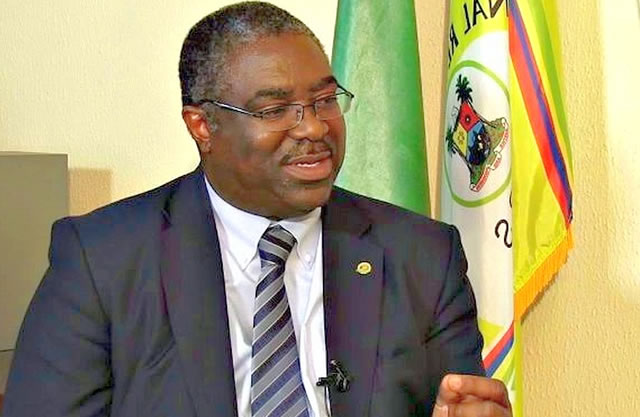
The Federal Government’s renewed bid to widen the tax net by compelling the wealthy to pay their taxes appears to be making progress, but only very marginally. For a country desperate to rake in funds to address her massive infrastructure deficit and lift the standard of living of a predominantly impoverished population, it is very important to expedite the process of improving the tax compliance level of the citizens, especially the rich.
It is perhaps for this reason that the Chairman of the Federal Inland Revenue Service, Tunde Fowler, said recently that the agency would soon crack down on billionaire tax evaders by freezing their bank accounts. He must have realised that people would not ordinarily commit themselves to voluntary tax payment, unless persuaded by the prospect of a firm and unbiased enforcement of the extant laws.
Fowler noted that despite concessions given to defaulting individuals and organisations, the result had not been quite impressive. “First, they (wealthy) refused to come forward (to file in their tax returns) in 2016; they refused to come forward under VAIDS (Voluntary Assets and Income Declaration Scheme) and are still operating there,” said the FIRS boss whose agency had, through bank data, been able to identify over 6,772 of such defaulters who have between N1 billion and N5 billion in their accounts.
Nigeria’s notoriously low tax compliance rate – a tax-to-Gross-Domestic-Product ratio of six per cent – has been attributed to the government’s past lackadaisical attitude towards tax revenues, having been guaranteed a regular income from oil and gas. But with the recent recession triggered by the fall in oil prices, the country has now come to appreciate the value of tax, which is a dependable source of sustenance in most countries, especially the developed ones that are not so natural resource-endowed.
Vice-President Yemi Osinbajo painted a pessimistic and pathetic picture of tax compliance level in the country at the launch of VAIDS last year. Of the 69 million taxable Nigerians, only a dismal 14 million were captured in the tax net, he noted, quoting figures from the National Bureau of Statistics. As if the figures were not grim enough, the Vice President also stated that only 214 taxpayers paid N20 million or more annually, while only 900 paid N10 million or more annually as tax. While all the 214 were resident in Lagos, only two of the 900 were based outside the country’s commercial capital.
VAIDS, a kind of amnesty for high net worth tax defaulters, was introduced to encourage more of those who had not been so willing to discharge this aspect of their civic responsibility to voluntarily do so. They had till March 31, 2018 to declare their assets and pay commensurate tax. At the expiration of the nine-month period of grace, further extensions have been granted, with little success. The former Minister of Finance, Kemi Adeosun, told a World Bank team in May that only additional five million people had been added to the tax net, bringing the total to 19 million.
Perhaps, the lesson to be learnt is that, when it comes to tax matters, persuasion alone does not work. VAIDS, the way it is packaged, is supposed to result in the prosecution and naming and shaming of those who fail to take advantage of the window of grace provided by the numerous deadline extensions. Rather than tell Nigerians that the FIRS had identified big defaulters and would soon go after their bank accounts, what the agency should be doing now is to get cracking with legal proceedings against them. In other climes, those who breach tax laws are not treated with kid gloves.
In Spain, many footballers have had to cough up millions of euros, in fines and in interest, after being indicted for failing to comply with tax requirements. For example, the reigning World Footballer of the Year, Cristiano Ronaldo, now of Juventus in Italy, accepted to pay €18 million after he was convicted of tax fraud. The BBC reported that the player was accused last year of defrauding the tax authorities of €14.8 million, an allegation he denied. But the former Real Madrid star barely escaped incarceration because, under Spanish laws, his two-year sentence can be served on probation as a first-time offender.
Similarly, his rival and fellow serial winner of the world’s best footballer title, Lionel Messi, was sentenced to 21 months in jail, but opted to pay a fine of €400 for each day that he would have spent behind bars. The Barcelona player, along with his father, Jorge Messi, was found guilty of defrauding Spain of €4.1 million between 2007 and 2009. According to reports, father and son were fined €2 million and €1.5 million respectively after paying a voluntary €5 million “corrective payment” equal to the dodged tax and the interest.
The same fate has befallen other players and coaches, including Manchester United’s manager, Jose Mourinho, who also accepted to pay huge fines to avoid spending time in jail. This is what countries that know the worth of tax money do. In the United States, a reality TV actor, Richard Hatch Jr, was thrown into jail for failure to pay taxes on the $1 million he won on the hit CBS show, “Survivor”.
But here in Nigeria, many people in the vibrant informal sector, worth N39 trillion of the Gross Domestic Product by the NBS computation, are not even captured in the tax net; just as many political office holders and businessmen are not. This anomaly has to change. Nigeria’s high net worth individuals and companies have to comply with their tax obligations or face the consequences; there has to be the political will to enforce tax laws because compliance is fundamental to the survival of the country.
END

Be the first to comment